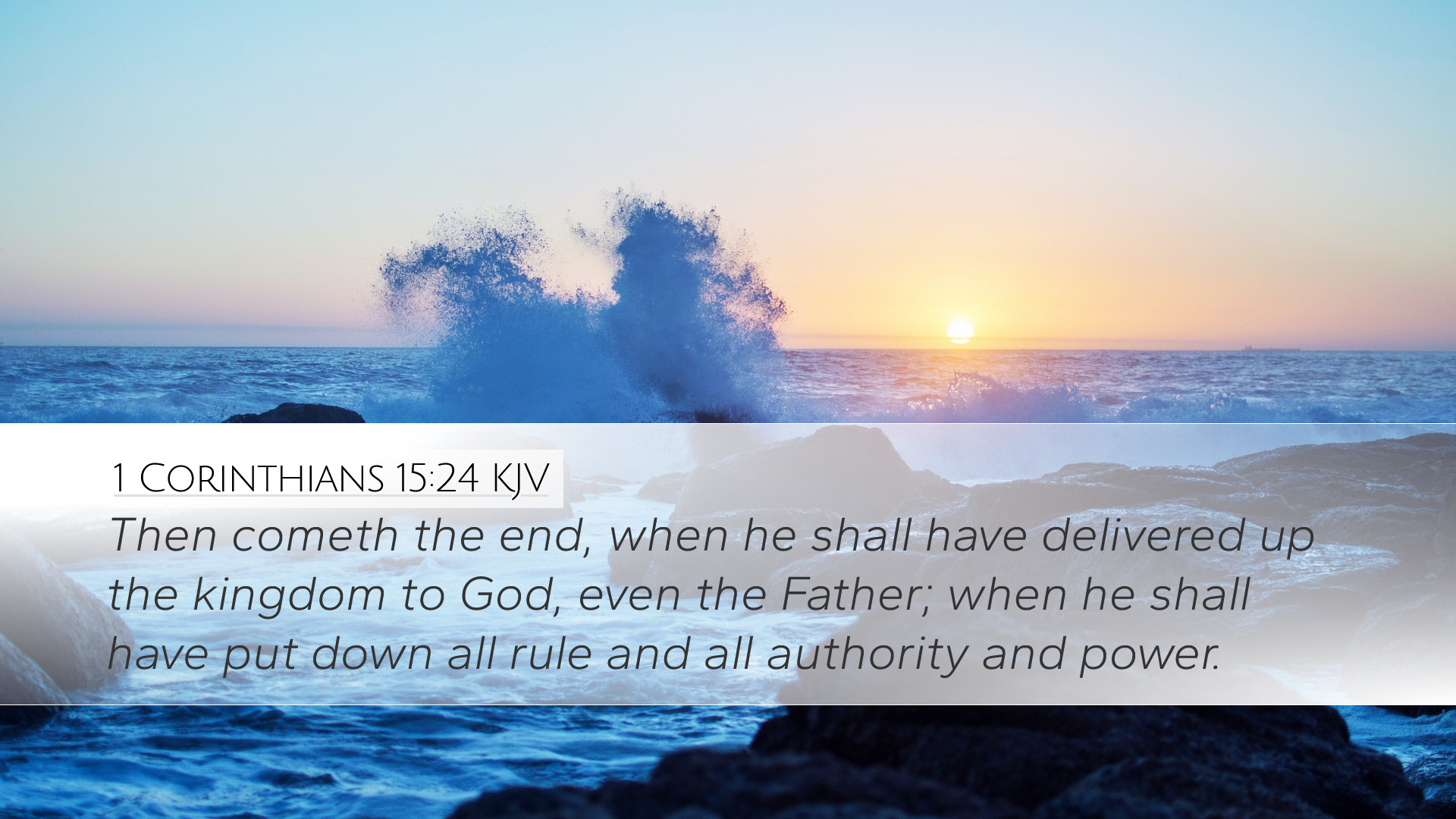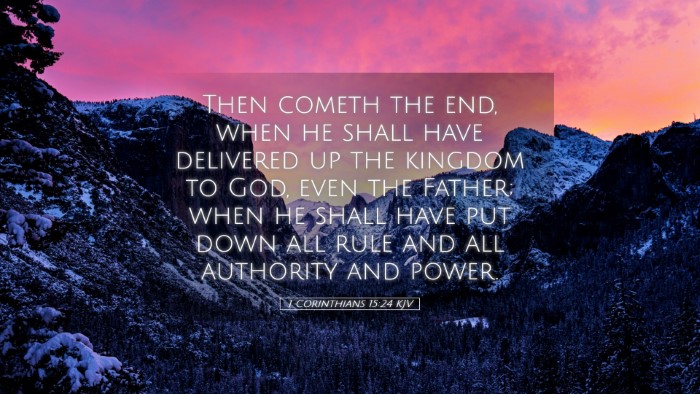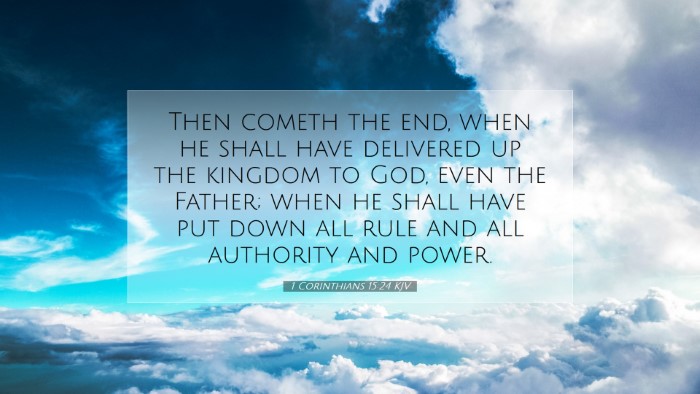Commentary on 1 Corinthians 15:24
Verse Reference: 1 Corinthians 15:24 - "Then comes the end, when he delivers the kingdom to God the Father after destroying every rule, every authority, and power."
Introduction
The passage of 1 Corinthians 15:24 marks a significant point in the Apostle Paul's discussion about the resurrection and the ultimate victory of Christ over sin and death. This verse provides a profound insight into eschatological themes, showing the culmination of Christ’s redemptive work and His reigning authority. In this commentary, we will explore key theological themes, historical context, and various interpretations drawn from treasured public domain commentaries.
Theological Themes
- The End Times: The phrase "then comes the end" anchors the text in eschatological discourse, reminding readers that history is directed towards a climactic conclusion orchestrated by God.
- The Kingdom of God: Paul speaks of delivering the Kingdom to God the Father. This image of the Kingdom suggests a restoration of order and dominion, reflecting God’s sovereign reign over all creation.
- Defeat of Powers: The verse highlights Christ’s role in destroying every rule, authority, and power, underscoring His triumph over spiritual and earthly dominions that stand opposed to God’s purposes.
Historical Context
In the Corinthian church, confusion about the resurrection and the nature of Christ’s kingdom was prevalent. Paul's intent was to clearly articulate the implications of the resurrection for believers, assuring them of the ultimate victory over death. Understanding this cultural backdrop enhances our grasp of the apostolic message. The Jewish expectation of a Messianic kingdom intermingled with Greek philosophical thought adds layers to this discourse.
Commentary Insights
Matthew Henry
Henry outlines that the ultimate end of Christ's redemptive work is His delivering of the Kingdom to God. He emphasizes that all usurpations of power will be crushed, painting a picture of comprehensive victory. According to Henry, this delivery is akin to a faithful servant presenting their work to their master, thus indicating the fulfillment of God's divine plan.
Albert Barnes
Barnes elucidates that the “end” indicates a future time marked by Christ's return, when His authority will be fully recognized and established. He asserts that this verse describes the final act in the divine drama where Christ abolishes all opposition - which may include human governmental powers and demonic forces. The nature of Christ's rule is thus presented as all-encompassing and supreme, foreshadowing a time of peace and righteousness.
Adam Clarke
Clarke underscores the significance of the term “delivers” as it conveys the idea of transformation and completion. He notes that the act of delivering the Kingdom back to God reflects the perfect harmony intended from the beginning of creation. Clarke also touches on interpretations which consider this verse in light of the broader narrative of reconciliation and restoration through Christ, culminating in an eternal state of communion with God.
Conclusion and Application
The message of 1 Corinthians 15:24 is profound and multifaceted. It invites scholars, pastors, and theologians to delve deeply into the implications of Christ’s victory. The themes of the end times, the victory over powers, and the delivery of the Kingdom encourage believers to live with hope and assurance. They remind us of the assurance believers have in the triumphant reign of Christ and the ultimate restoration of all things. In light of these insights, it is our call to bear witness to this victory in our lives, reflecting the hope of resurrection and the certainty of God’s divine sovereignty.


